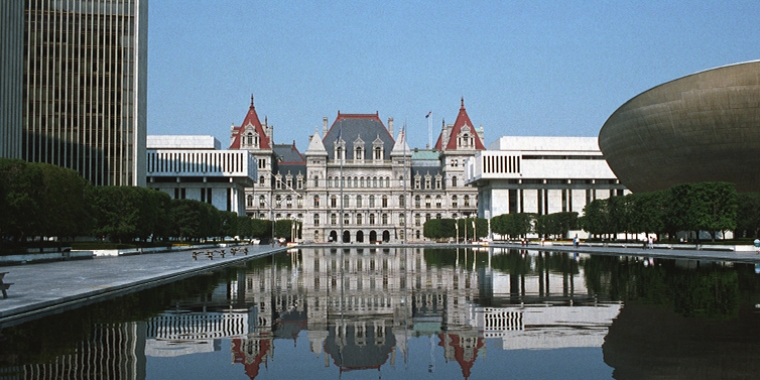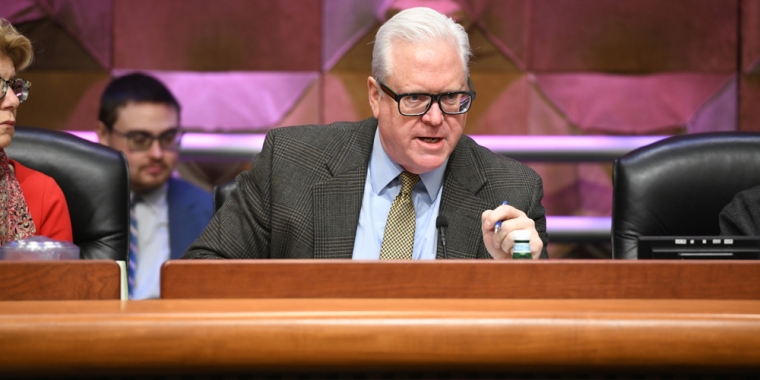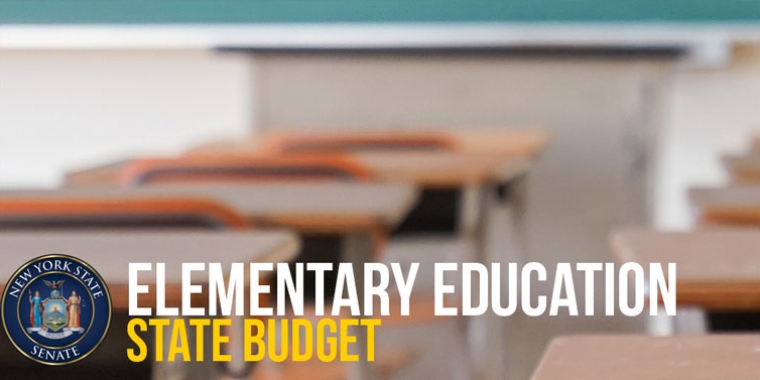
Senator O'Mara's weekly column 'From the Capitol' -- for the week of November 21, 2022 -- 'Time to rethink NY's energy future before it goes too far'
November 21, 2022
-
ISSUE:
- Energy Affordability

Senator O'Mara offers his weekly perspective on many of the key challenges and issues facing the Legislature, as well as on legislative actions, local initiatives, state programs and policies, and more. Stop back every Monday for Senator O'Mara's latest column...
This week, "Time to rethink NY's energy future before it goes too far"
One thing we know following Governor Hochul’s election is that New York State will remain full speed ahead on a radical remaking of energy policy.
The cost of a gallon of gas remains high. There’s no end to the warnings for significantly higher home heating costs this winter and who knows how many winters to come. With the snow falling and the temperatures dropping -- and the start of a new legislative session fast approaching in January -- it’s worthwhile to remember where this state is headed in the short and long term.
Over the past three years, I have joined many legislative colleagues and others to sound the alarm on the “Climate Leadership and Climate Protection Act” (CLCPA), which was signed into law in 2019 by former Governor Andrew Cuomo and created what’s known as a “Climate Action Council” (CAC) to undertake specific plans to implement the state’s far-reaching renewable energy goals. Governor Hochul has not and will not hesitate to do everything she can to accelerate the implementation of these aggressive goals through the CLCPA, goals that will come at great cost and consequences for local communities, economies, and residents.
Yet far too many New Yorkers remain largely in the dark about where it’s all headed and how far it goes. Simply put, it represents a radical remaking of New York’s energy future that will be enormously expensive for state and local taxpayers, especially residential and business utility ratepayers. It’s going to arrive as a great shock.
With public awareness in mind, an important coalition comprised of the Independent Power Producers of New York State (IPPNYS), the Business Council of New York State, Inc., the AFL-CIO, and the New York State Building and Construction Trades Council recently put forth important recommendations to address shortcomings in the state’s renewable energy strategy.
The coalition wrote, “This joint announcement lays a foundation for meeting New York State’s goals while keeping New Yorkers’ lights on and their energy affordable and clean. The current draft Scoping Plan is complicated, could greatly impact affordability for ratepayers, has no comprehensive analysis of implementation costs for ratepayers, and could have a detrimental effect on the economy and ALL New Yorkers. These principles, supported by labor, business, and industry, provide the framework for how the Climate Action Council should best utilize public input and recommendations from CAC subgroups to make achieving New York’s benchmarks more realistic and achievable.”
You can read more about the group’s Seven Principles on the IPPNY website at: www.ippny.org. The group crystalizes and reaffirms key points that many of us have been making for several years, particularly that the state’s strategy as it stands is not realistic and it will not be achievable -- yet it will arrive at enormous cost to all New Yorkers. It remains important for more citizens, communities, businesses, families, and workers to fully understand where New York’s energy future is headed, including in the near future, and to continue to help urge a desperately needed rethinking and slowing down of this process.
Our Senate Republican conference has steadfastly highlighted the plan’s extreme efforts to eliminate reliable, affordable sources of energy. Natural gas hookups and services, as well as those from propane and heating oil, are vital for New Yorkers -- especially in rural communities and during harsh winters -- and cutting off these dependable sources of energy, like Governor Hochul intends to do, would be costly to residents and businesses and ineffective on a global scale.
Soon, for example, millions of homeowners could be forced to convert their natural gas, propane, or heating fuel oil furnaces to electric at estimated costs of as much as $40,000 per household. In just five years, 2027, you will no longer be able to build a new home or building in New York State with a natural gas, propane, or fuel oil furnace or boiler. Furthermore, the plan anticipates job losses and negative impacts to school and local government property tax bases. It anticipates industries being shuttered and subsequent job losses. To help the state afford it, proposals have been introduced that would increase gasoline costs by an additional 55-cents-per-gallon tax and drive up home heating fuel by another 26%.
I and many others have stated numerous times since 2019 that we have fully encouraged New York’s past efforts to increase cleaner and renewable power, to the point where our state is already a national and worldwide leader. We already account for just 0.4% of global carbon emissions. It’s already an admirable record of accomplishment in a state as large as New York. Nevertheless, the CLCPA applies only to New York. It will have no bearing on the actions of neighboring states or, even more critically, to China, India, or Russia, which account for 40% of global emissions. In other words, even if New York State does reach zero emissions, there will be zero impact on our own climate or the global climate at large -- yet it will still fall on all New Yorkers at a heavy price. New Yorkers are already being hit by so many higher costs across the board and now is no time for state government to make it worse, all in the name of progressive politics.
IPPNY President and CEO Gavin J. Donohue has stated, “These four organizations coming together clearly demonstrates the magnitude of our clean energy goals and how all options should be on the table for discussion. The Climate Action Council is responsible for the complicated task of creating a draft Scoping Plan, but the current version could have a serious negative impact on all New Yorkers. Together, we believe this set of principles lays the groundwork for what should be considered in our climate plans to ensure a realistic approach to achieving the State’s aggressive goals. These concepts were developed by experts of the energy, business, and labor sectors based on factual data, studies, and trends. We cannot lose sight on the importance of our existing renewable resources while we continue our efforts to invest in new and innovative renewables and technology. We all support the transition to a cleaner energy future, but we must be realistic and work toward our goals in a responsible manner as we develop zero emission dispatchable technologies to maintain reliability while meeting the CLCPA’s targets.”
There’s a growing belief, we hope, that every step of the way there must be a constant recognition of the need for balance and common sense in pursuit of the overriding goals for New York’s energy future. There absolutely must be a meaningful analysis of the costs versus the benefits of these actions and the impacts they will have on our energy system’s reliability as well as affordability.
The ongoing implementation of the regressive taxes that will inevitably be required to undertake the state’s current strategy will leave lower- and middle-income families and workers, motorists, truckers, farmers, small businesses, manufacturers and many other industries, and seniors among the hardest hit.
###



